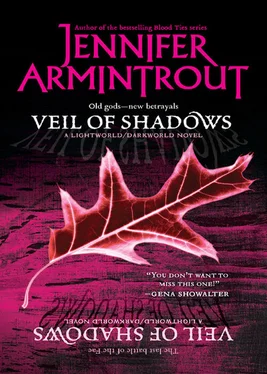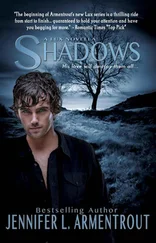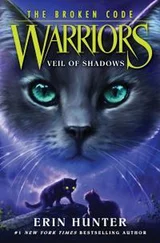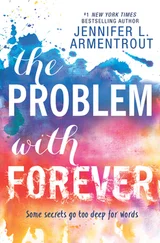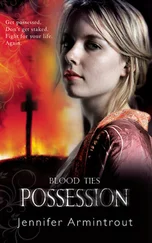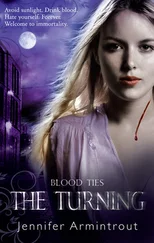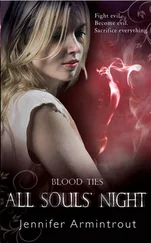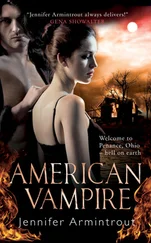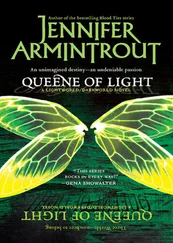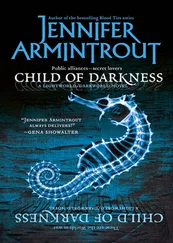Praise for the novels of Jennifer Armintrout
“Every character is drawn in vivid detail, driving the action from point to point in a way that never lets up.”
—The Eternal Night on The Turning
“[Armintrout’s] use of description varies between chilling, beautiful, and disturbing…[a] unique take on vampires.”
—The Romance Readers Connection
“Armintrout continues her Blood Ties series with style and verve, taking the reader to a completely convincing but alien world where anything can—and does—happen.”
—RT Book Reviews on Possession
“The relationships between the characters are complicated and layered in ways that many authors don’t bother with.”
—Vampire Genre on Possession
“[This book] will stun readers…. Not to be missed.”
—The Romance Readers Connection on Ashes to Ashes
“Entertaining and often steamy romances run parallel to the supernatural action without dominating the pages.”
—Darque Reviews on All Soul’s Night
“Armintrout pulls out all the stops…a bloody good read.”
—RT Book Reviews on All Souls’ Night
Books by Jennifer Armintrout
Blood Ties
BOOK ONE: THE TURNING
BOOK TWO: POSSESSION
BOOK THREE: ASHES TO ASHES
BOOK FOUR: ALL SOULS’ NIGHT
The Lightworld/Darkworld novels
QUEENE OF LIGHT
CHILD OF DARKNESS
VEIL OF SHADOWS
JENNIFER ARMINTROUT
VEIL OF SHADOWS
A LIGHTWORLD/DARKWORLD NOVEL
This book is dedicated to
all the family members who were angry
that I dedicated the last book to someone
who won the dedication in a Twitter contest.
Prologue
Chapter One
Chapter Two
Chapter Three
Chapter Four
Chapter Five
Chapter Six
Chapter Seven
Chapter Eight
Chapter Nine
Chapter Ten
Chapter Eleven
Chapter Twelve
Chapter Thirteen
Chapter Fourteen
Chapter Fifteen
Chapter Sixteen
Chapter Seventeen
Chapter Eighteen
Chapter Nineteen
Chapter Twenty
Acknowledgments
When the first of them appeared, there were skeptics. Some simply did not believe that these “creatures” calling themselves Faeries or Angels or Vampires or whatever were not part of some elaborate hoax. Perhaps a conspiracy, their own country’s governments, or a shadowy world government, working to manipulate them. Into doing what, they did not know, but still they doubted what had come to pass.
There were others, though, who did not believe the event to be false. And though they were right, they were ridiculed. Their near-instant belief that their salvation had come—or, as some believe, their damnation, and they were, perhaps, closer to the truth—obscured how very serious and dangerous the situation was.
The initial shock of their appearance, whether it inspired pleasure or suspicion, did not last. For not all the creatures were kind, and some…some had to feed.
So, it was with fear and trepidation that the Humans began to move underground. Into shelters constructed for an imagined future war, into spaces that were undesirable before the creatures came.
And since they fled of their own accord, the visitors assumed the surface of the Earth with gratitude.
Years went by. Ten, twenty, a hundred. And in the vast cities that had formed beneath the surface, a rumbling of what had happened generations before twisted, became something sinister. The creatures had come, forced the Humans belowground, ruled them with hatred and cruelty. And though no immortal creature could remember this being so, it could not stop the rage of the Humans. It could not prevent the war.
Despite their numbers, their experience and their sheer power, the immortals lost the fight. Driven underground themselves, they eventually forgot their hatred of the Humans who had cast them out. One by one, they gave up striking back at the Humans, and began striking out at one another.
The wars that raged beneath the surface formed the Lightworld and the Darkworld, as they came to be known. Two separate factions with a common enemy, but different goals. And they hated each other.
The Lightworld longed for the Earth to be restored to the Fae races, as they had ruled parts of it long before Humans learned to interfere with the land. The Darkworld, those who did not believe in their right to rule over the Humans above, who only wished to return to the way they once were, found themselves outcasts, forced to the worst parts of the Underground.
In the cities of the Upworld, the Humans continued on, always aware of what lay beneath their feet, but never really knowing what the murky fear was doing. It was better for them, that way, for what you never know cannot truly hurt you.
“You were lucky beneath Boston,” the old ferry captain, Edward, said. “You know what happened to them down in New York? Flooded ’em out. Drowned ’em. Them creatures that didn’t drown, them were hunted by the Enforcers and killed.”
Cerridwen opened her eyes, reluctant to leave the sleep that had been her refuge from the terrible sickness she’d felt while awake. The vessel they had departed on that morning, a ramshackle boat the man had kept calling a ferry—not, Cedric had assured her, in mean-spirited jest toward their kind—still churned and tossed. How the Human could stand, so straight and balanced, as the craft pitched from the crest of one wave to another, Cerridwen did not know. But the motion made her stomach seize, her head go dizzy.
Cedric and the rest of the Fae they traveled with seemed unaffected by the motion, as well. Cedric, particularly, seemed to revel in their time on the sea, standing at the prow, listening to the bearded old man call out stories against the wind and the spray. Though the blinding sun had set, Cedric still stood in the place he’d inhabited when she’d fallen asleep. Face turned toward the horizon, an expression of serene pleasure—or as much of one as Cerridwen had ever seen on the ancient Court Advisor. Calmness gilding his features the way the morning sun had, it seemed as though he had completely forgotten the precarious position of their future, and the violence they had left behind.
Cedric had been alive long before the rending of the Veil had spilled all the creatures of the Astral onto Earth. To him, the sun, the wind, the water were all old friends. They greeted him with familiarity and Cerridwen realized how much he must have longed to escape the cramped and dank Underworld. To her, born after the Fall and in the cavernous Underground, the elements showed only hostility.
Cedric nodded, but did not face the old man. “I did not know there were other cities…I thought that most had died in the battles, and that whoever remained of us were underground in the same area. That it was just too large—”
“If you’d kept going, you’d hit the end.” Edward spoke with such authority, it was as though he’d been there.
It was not impossible to believe. Cerridwen had always wondered that the boundary between the Lightworld and the Darkworld was so well defined, and yet no one seemed to know if there were other boundaries, and if there were, where they lay.
“Everyplace where they didn’t just get rid of you. New York, that was one of them. Boston, well…you saw what that’s become. No one wanted to stay, once your kind were underground. Up and left. Most of the cities went that way. Decided it was easier to give up and leave than try to live with knowing what existed just beneath them.” The old captain seemed to be amused by this.
It was not amusing. The Humans had forced them underground, then abandoned the very spaces they’d coveted for themselves. Cerridwen wondered if she’d ever understand these strange beings.
Читать дальше
